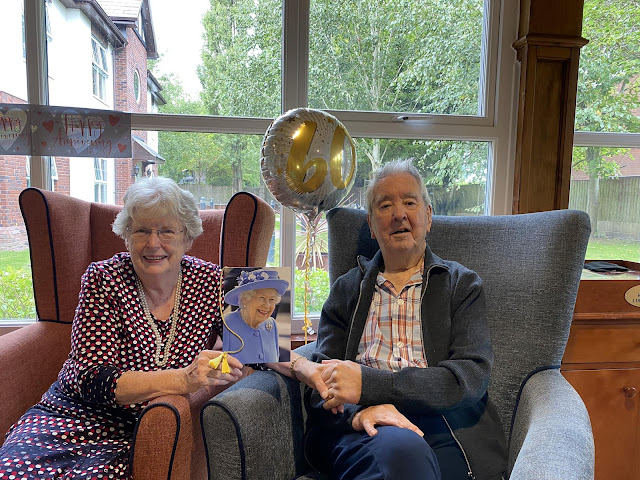Guardians of History by Debbie Bennett
So I’ve been conspicuously absent from this blog – and life in general for a few months. If 2023 was the year of health and getting my teeth done, then 2024 has so far been the year of death and the major life-changes that death brings to those of us left behind.
In January I lost my dad after a long, and slow decline into dementia. He’d been existing (I don’t use the term living, because he really wasn’t) for 18 months in a lovely care home, but passed away quietly in his sleep one night – a week before my 60th birthday and the party I’d planned.
My mum was in hospital at the time – she’d been admitted after some blood tests – and we didn’t realise then that she’d never live on her own again. After a terminal cancer diagnosis, she was in and out of hospital, respite care, her own home with carers 3 times a day (and me living with her on and off) and then she declined rapidly over a period of days and was suddenly gone. Overnight. No real goodbyes. My adult daughter and I spent her last few days with her, holding her hands and talking, reminiscing and just sharing space. It was as peaceful as it could be, but still sudden.
Enough with the misery. As I said on Facebook, they are reunited again after 61 years of marriage, it’s spring and the cycle of life continues. I was off work for six weeks, but went back at the end of April. And I’m left with sorting through mum’s flat before I put it on the market.
You can learn a lot about a person by what they keep. There are boxes of papers; much of it is junk – prints of old emails, old leaflets, catalogues and instructions. Boxes of flight freebies from the dozens of trips they took to Australia to see my brother and his family, towelling slippers from the hotels in which they stayed on stopovers. And boxes of handwritten letters from a shy and naïve 16 year old, newly moved to London from rural Devon in the early 1960s to a 24 year old guy from a large Mancunian mixed-race family. Mum and dad met in a civil service hostel and she was 19 when they married. She kept all the letters. I haven’t yet read them, but they are safely stored.
There were boxes of my writing. Copies of Bella magazine which contained my first commercial sale. Printouts of short stories I’ve written, newspaper cuttings and my publicity material. Further back are childhood stories, birthday and get-well cards I ‘designed’ as a child. Photos everywhere, on walls, in albums, loose in more boxes. All lovingly stored.
And we just don’t do this in the 21st century, do we? We don’t hand write letters anymore – it’s all social media, emails and WhatsApp. All our documents and photographs – our entire lives and memories – are stored in the cloud, and as soon as we stop paying, or we die, or we are hit by an EMP or the internet/power grid goes down, then those virtual electronic lives are gone forever. I do at least print out selections of the best family photographs and display them in frames and in photo albums, but I’m late boomer generation and I suspect those younger than me don’t even do that. Sometimes memories need to be tangible to survive.
As writers we are also historians. Guardians of information. We may write fiction, but it’s based on fact. Without tangible evidence of our lives, how will future generations know we even existed?

Comments
This post has reminded me that I need to get on with sorting out my own papers and photographs as well as other things currently trapped in our front room behind some piles of stuff that my son moved downstairs to make room for me to walk about when I came out of hospital last year! Somehow some of the stuff just seems to get rearranged instead of reduced.
Dianne
Your keen observations about digital and print legacies are so relevant to me as a writer. Paper lasts longer. Digital works get duplicated easily, but can disappear instantly. My traditionally published books are out of print, only my indy works remain extant.Most of the magazines that published me, have from print to digital archives, and disappeared. A couple of contemporary literary journals that carried my stories remain, subject to the same ephemeral fates.
In any case, I hope you can continue to explore this fertile ground. I also wish you the best as a colleague, and of course, in your life.
No we don't write letters any more so I wonder what my daughter will have to remember of me? My quirk is that I print off and collect all my AE pieces - two folders now - a kind of memoir. They're a guardian of my own history.
Thanks for the post Debbie which memorialises your grief and which has made me think.
Whenever will I get over making typos??